New Samsung Galaxy Book2 Pro 360 fixes my big problems with last year's model
Samsung's flagship laptop is about to get even better
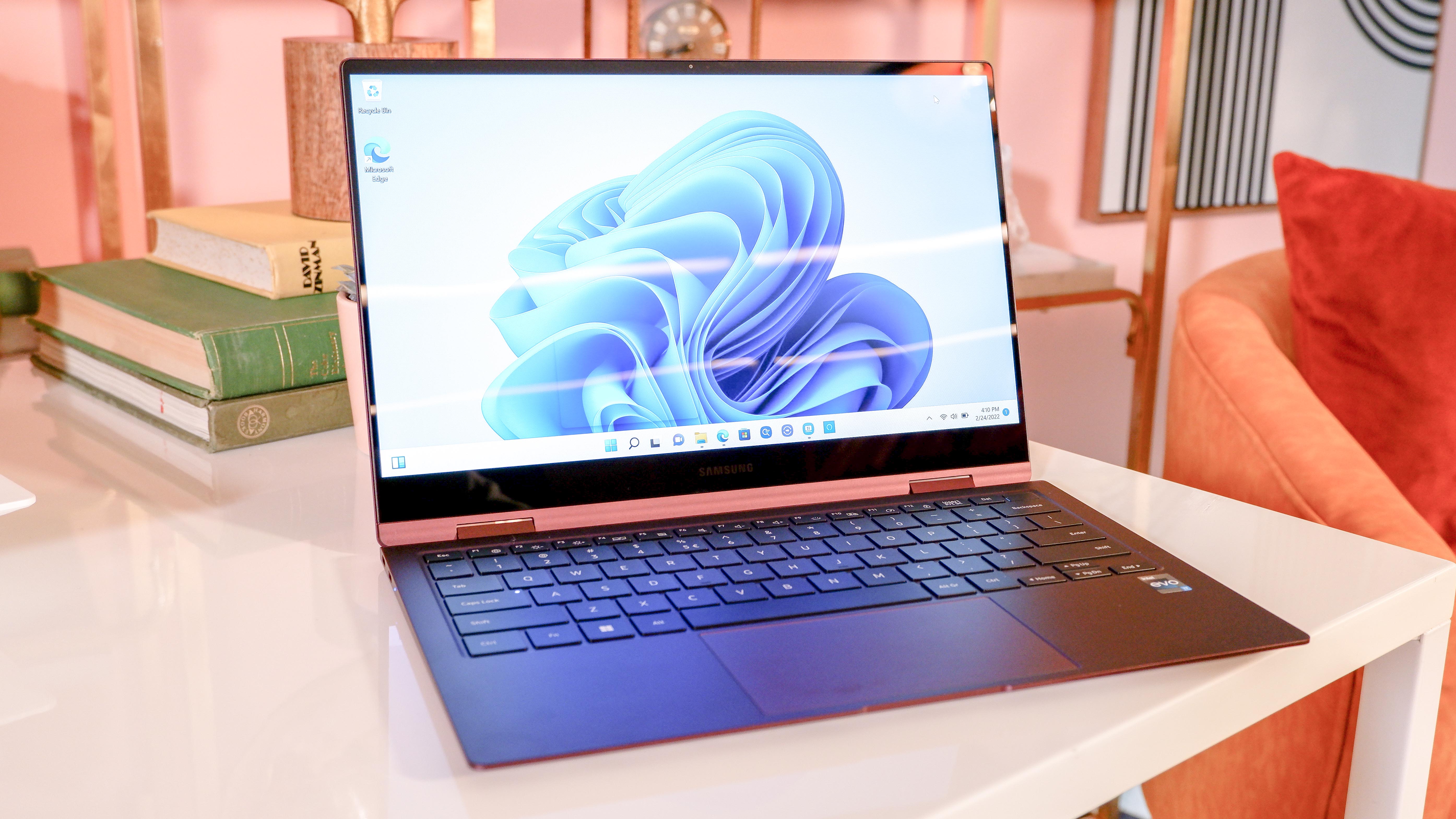
Samsung is unveiling a lineup of revamped Galaxy Books this week at Mobile World Congress in Barcelona, and while none of the upgrades are earth-shattering, they address some of my top concerns with the company's thin-and-light laptops.
That's a big deal given that last year's Samsung Galaxy Book Pro 360 was one of my favorite laptops of 2021 (it remains one of the best laptops you can buy today). In my Samsung Galaxy Book Pro 360 review I praised Samsung's flagship 2-in-1 for its solid performance, great battery life and beautiful display, which make compelling package. With its packed-in S-Pen Stylus, it's a great laptop for creatives on the go.
However, I was disappointed by the unflattering 720p webcam, and while the laptop felt speedy enough during day-to-day use, it lagged behind older competitors like the MacBook Air with M1 in our performance benchmarks.
These weaknesses kept the Galaxy Book Pro 360 from taking home any wins in the 2021 Tom's Guide Awards, though it did nab recommendations for best laptop overall and best laptop display, thanks to its gorgeous 1080p AMOLED touchscreen. Things could play out much differently this year, as Samsung looks set to address some of my top concerns with this year's line of Galaxy Books.
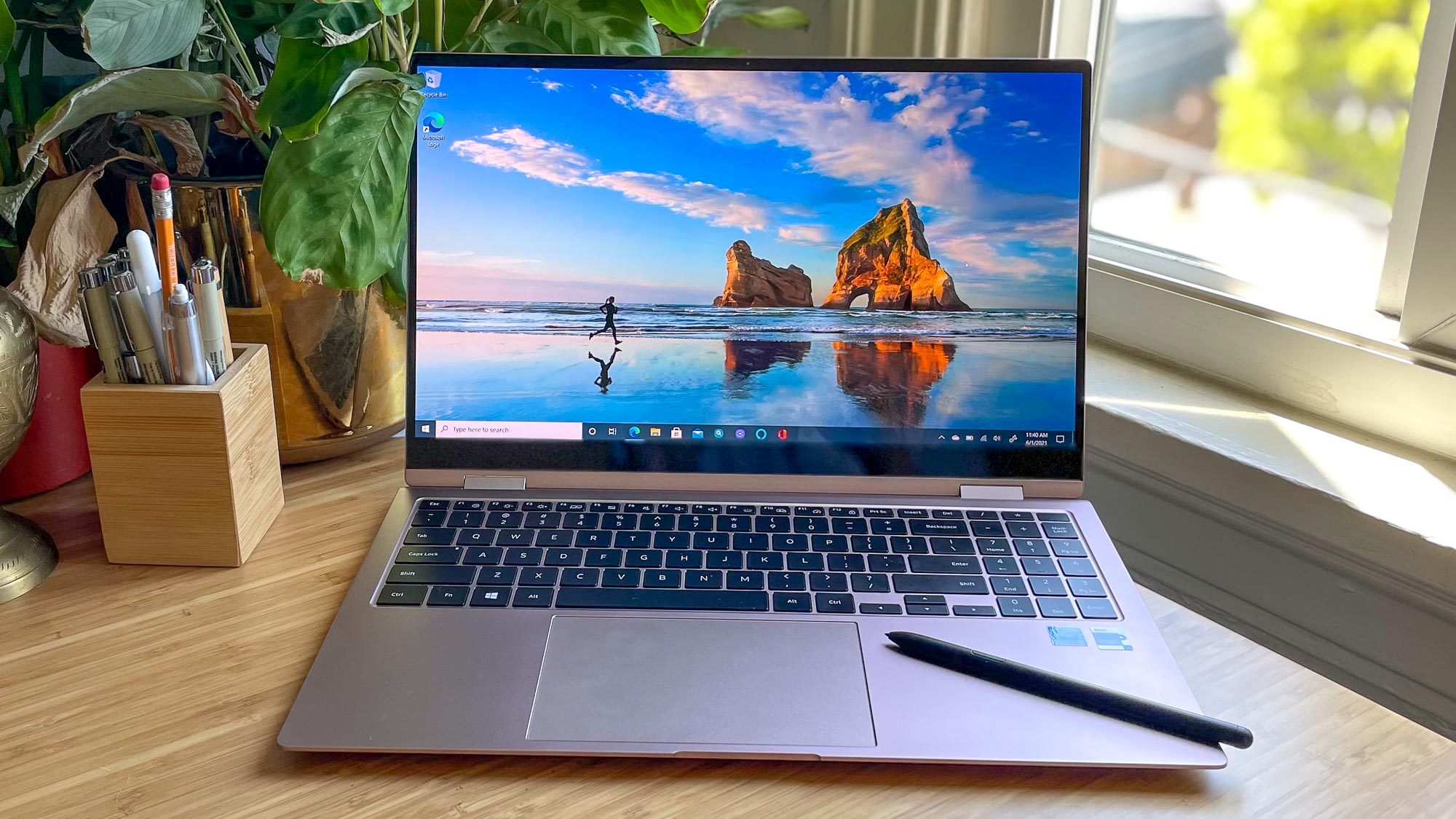
Samsung will release at least 4 new laptops in 2022. Confirmed models include the Galaxy Book2 360, the Galaxy Book2 Pro, the Galaxy Book2 Pro 360 and the all-new Galaxy 14-inch Book2 Business (which has a suite of business-grade security features).
There are two notable changes Samsung is making with the Book2 lineup: they all ship with the latest 12th Gen Intel CPUs, and they all now sport sharper 1080p webcams. That makes these laptops that much more appealing to pros on the go who need power-efficient devices that can deliver strong performance and make you look professional on video calls with clients, whether you're working from a coffee shop or your bedroom. If the Galaxy Book2 series are as good as last year's models, these upgrades should reinforce Samsung's position as a strong competitor in the Windows ultraportable market.
Samsung's laptops continue to impress
Samsung has been making a big push to boost its reputation as a laptop maker over the past year or so, starting with its first laptop-focused Unpacked event in 2021. That was where it unveiled the 2021 Galaxy Book lineup, led by the flagship Galaxy Book Pro and Galaxy Book Pro 360 (basically a 2-in-1 convertible version of the Pro). As I wrote at the time, Samsung’s Galaxy Book Pros were poised to shake up laptops in a big way, promising to deliver fast, long-lasting ultraportables tightly integrated with Samsung's Galaxy smartphones in a way that rivaled Apple's compelling integration of Macs with iPhones and iPads.
It's been nearly a year since I wrote that, and I don't know that Samsung's laptops have yet achieved the level of recognition they deserve. That might be in part because the company already has such a well-known reputation as a smartphone, tablet, TV and display maker, so the Galaxy Books get lost in the shuffle.
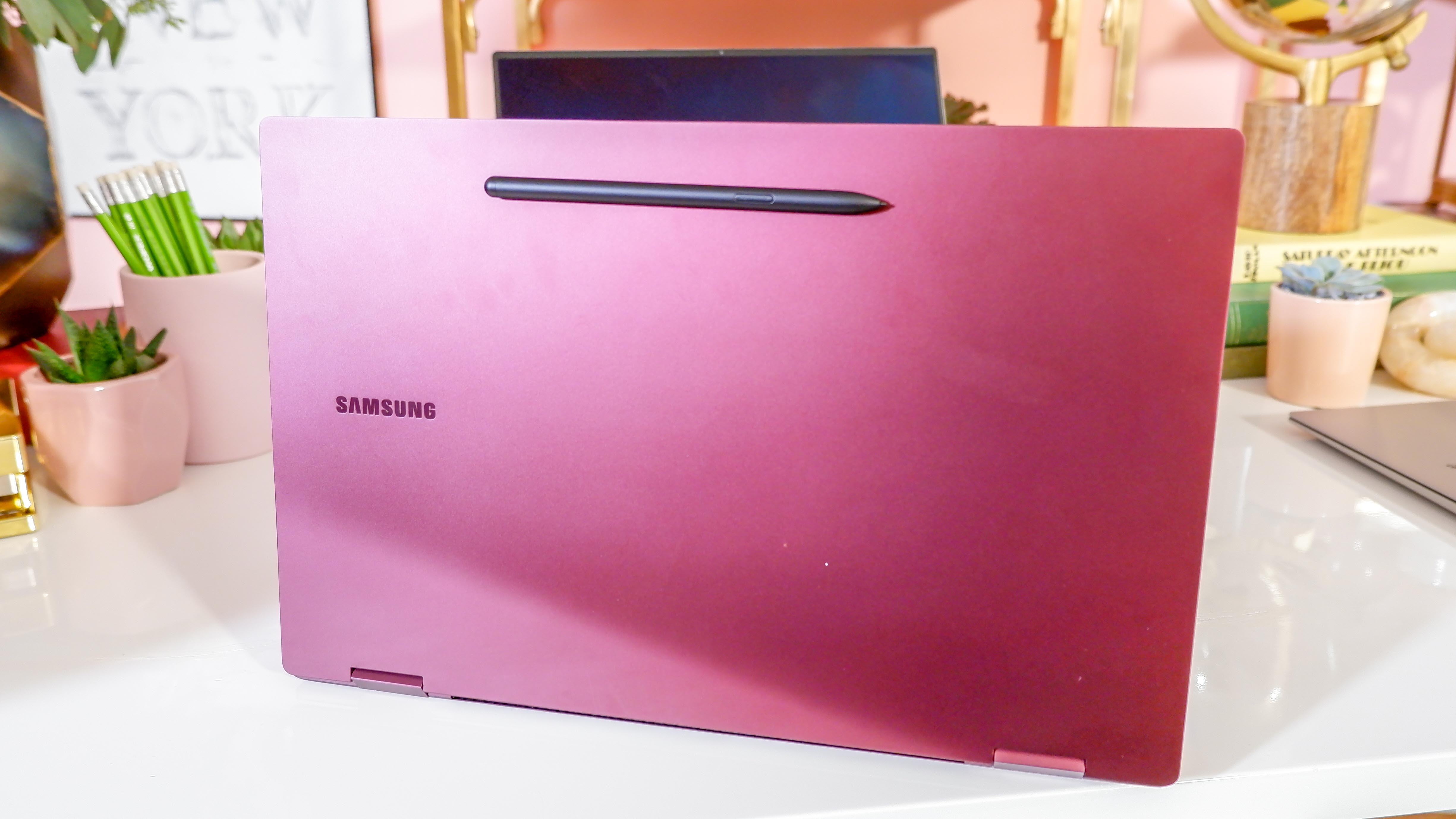
Or it might be that despite the global chaos caused by the Covid-19 pandemic, 2021 was actually a pretty good year for laptops, as companies like Apple, Dell and Intel released products that redefined our expectations of how beautiful, portable, and powerful laptops can be. As much as I liked the Galaxy Book Pro 360, I have to admit that the charm of its eye-catching 1080p AMOLED display and power-efficient performance were undercut by competition from the likes of the stylish Dell XPS 15 OLED and the many MacBooks that now deliver unprecedented performance thanks to Apple's bespoke M1 chips, including the impressive 14-inch MacBook Pro.
But now that Samsung appears to have addressed my top complaints about its Galaxy Book Pro laptops with the Galaxy Book2 Pro lineup, perhaps 2022 is the year Samsung's ultraportables become as commonplace at offices and coffee shops as laptops from the likes of Apple, Dell, HP and Lenovo.
The new features I'm most excited about
To give you a better sense of what's changing, let's look at the upgrades Samsung is making to the Galaxy Book Pro2 360. This year's model ships in the same sizes (13-inch or 15-inch) with roughly the same measurements, though the Pro2 360 appears to be a smidge thinner and heavier than its predecessor.
The Pro2 360 will ship with Windows 11 by default, and since the newest edition of Windows is more touch-friendly than its predecessor it should be a bit more enjoyable to use the Pro2 360 in tablet mode. Samsung is also making a lot of hullabaloo about the fact that the Galaxy Book2 Pro laptops are among the first consumer-grade laptops to be released in full compliance with Microsoft's Windows 11 secured-core PC requirements, which means they offer a mix of hardware and software security measures aimed at making your PC a less appealing target for bad guys. Remember the notorious Windows 11 TPM 2.0 (Trusted Platform Module) requirement that made installing the latest version of Windows such a nightmare for folks with older PCs? Samsung's new laptops appear designed in full compliance with all of Windows 11's security requirements, and that includes TPM 2.0 hardware.
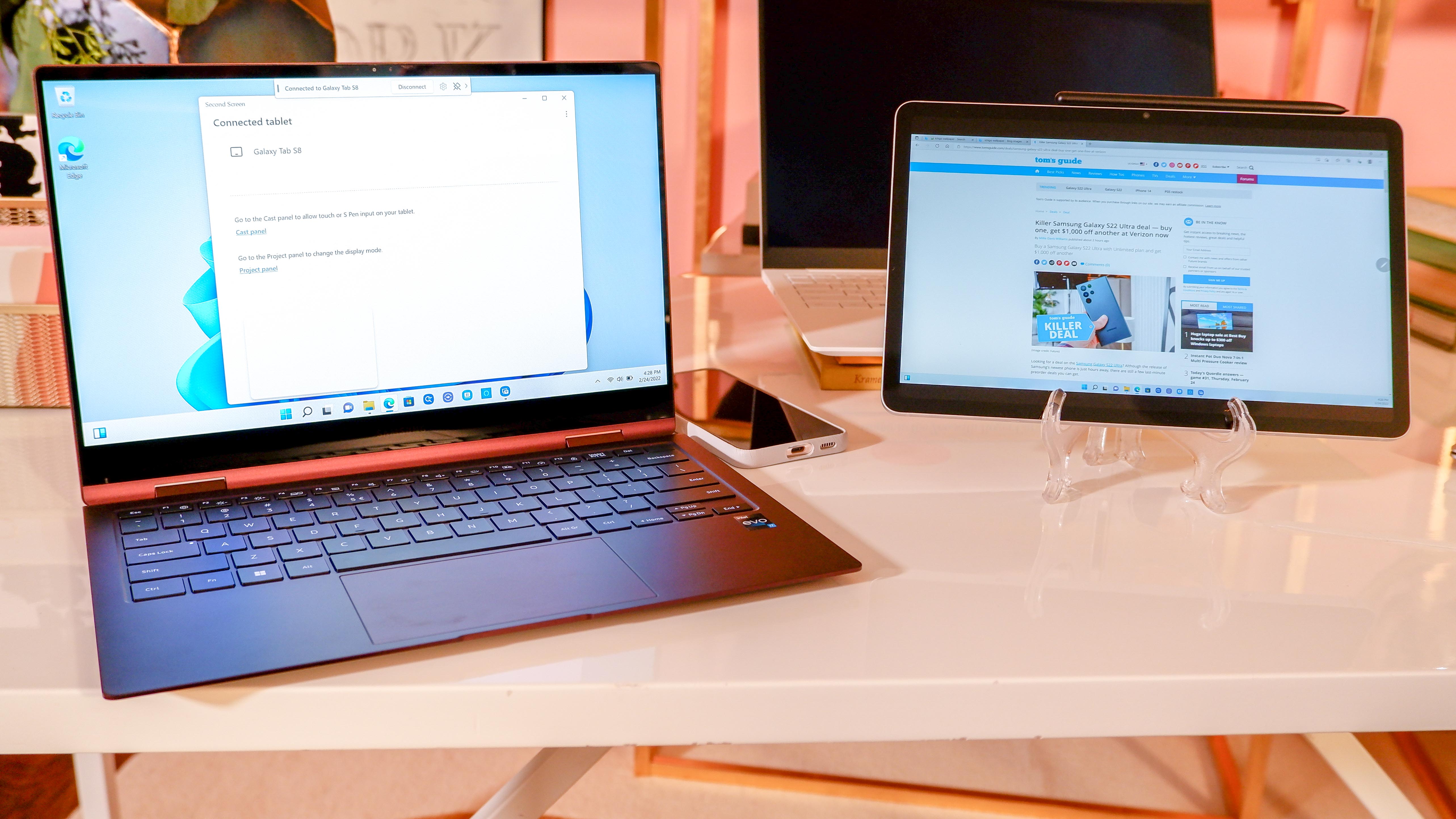
As I mentioned, the Galaxy Book2 lineup is also getting refreshed with Intel's latest 12th Gen laptop CPUs. That means they should be faster and more power-efficient than last year's models, of course, but the details of why are important when you remember that Apple silicon blew us away last year with its efficiency and performance.
The M1 Pro and M1 Max chips that Apple packed into its 2021 MacBook Pros are especially remarkable because they blew away all but the beefiest Windows laptops in our suite of performance tests, and that's in part because Apple's M1 CPUs are hybrid chips: They pair high-performance and high-efficiency cores together on a single chip with a unified pool of memory, and allocate tasks to different cores on the fly to maximize performance and battery life.
Intel took a similar hybrid approach when designing its new 12th Gen chips, making them the first Intel laptop CPUs to pair high-performance and high-efficiency cores on the same chip under the guidance of a new Intel Thread Director microcontroller.
This hybrid architecture gives Intel's latest laptop chips power to rival Apple's M1 Max, and the top-of-the-line 12th Gen Core i9 actually beats the M1 Max in our performance tests. So while you won't be able to buy a Samsung Galaxy Book2 with the same Core i9 (they're only shipping with Core i5/i7 CPUs in the U.S., though a Core i3 model will be available in other regions), there's a very good chance that the Samsung Galaxy Book2 Pro 360 will deliver performance and battery life on par with Apple's M1-equipped MacBooks.
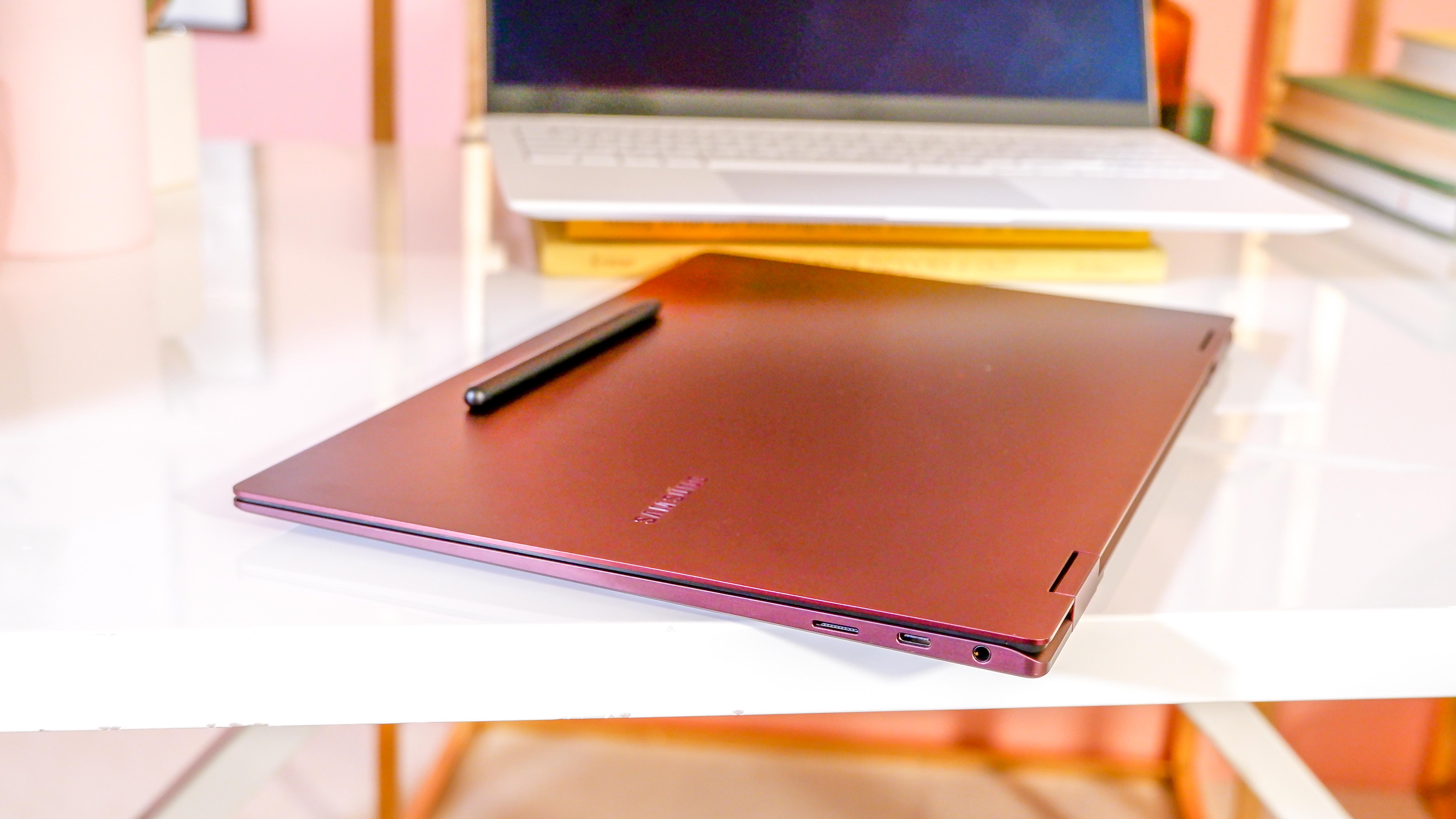
If that proves true it'll likely make Samsung's flagship Galaxy Book a shoo-in for one of our Editor's Choice awards, because it's also going to come with an upgraded webcam that should put the grainy 720p camera on last year's model to shame.
Specifically, the Samsung Galaxy Book Pro2 laptops will ship with 1080p FHD webcams with wider viewing angles (87-degree field of view vs. 77-degree FOV on 2021 Galaxy Book Pros) than last year's models. Also, there's a new Auto Framing feature added to the webcam's Studio Mode (which is designed to automatically kick in when using the camera) that automatically adjusts the frame during a video call to keep you centered, even if you move around. It sounds very similar to the Center Stage feature Apple introduced with its 2021 iPad Pros, and we like that simple trick so much that we named it one of the iPad Pro 2021's best new features. Samsung again appears to be taking a page from Apple's playbook here, just like it has with its tight integration of Galaxy smartphones — and again it looks like a smart move.
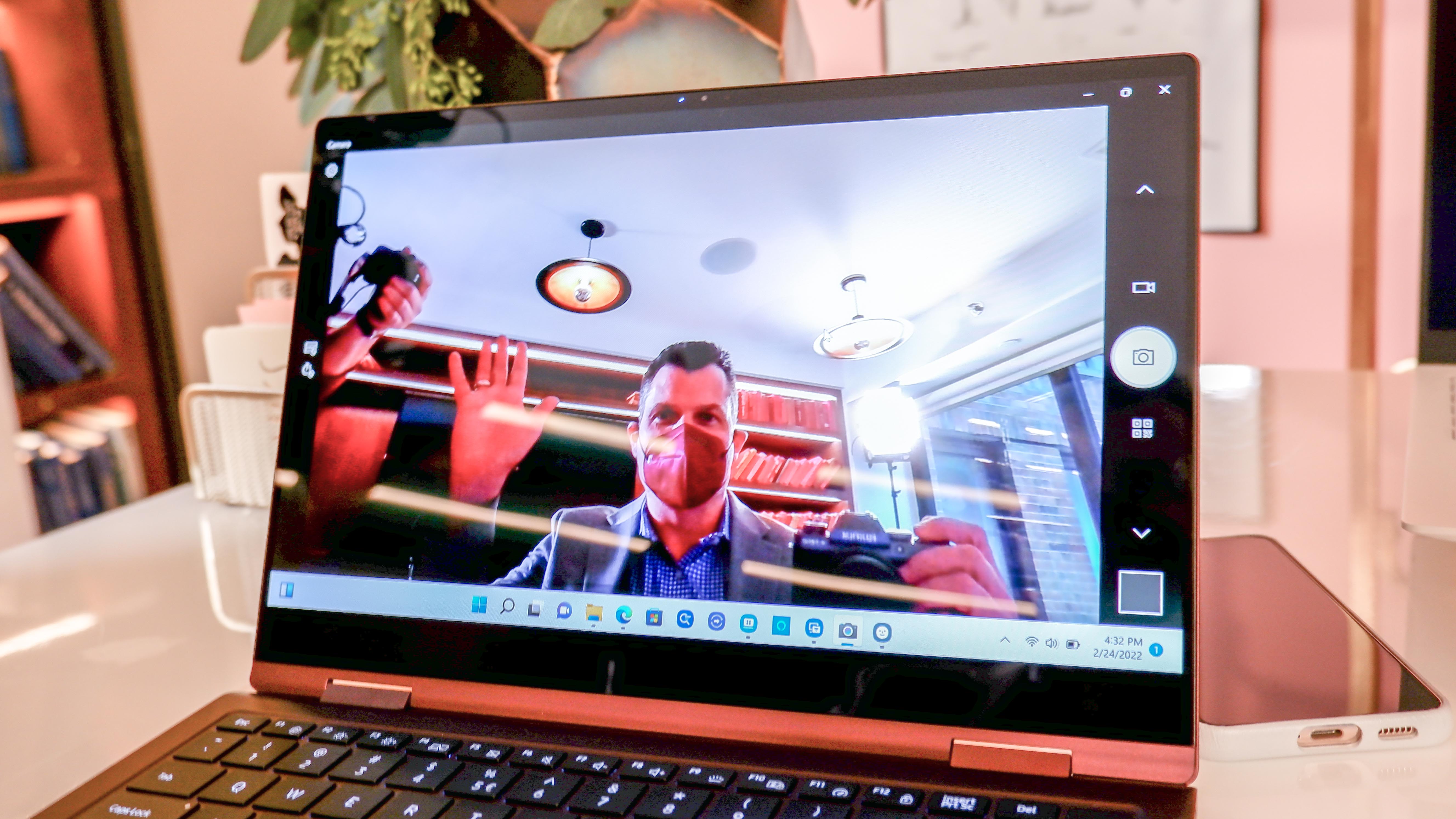
And while Samsung isn't putting a higher-res screen on the Galaxy Book Pro2 360, that's fine — I thought the AMOLED touchscreen on last year's model was amazing, and honestly I prefer 1080p resolution on a laptop over 4K because you can't really read text comfortably at 4K on even a 15-inch screen. The only thing I didn't like about the display on the original Galaxy Book Pro 360 is that it was a little dim, and our lab testing backed this up, measuring an average screen brightness of 264.4 nits. That's a bit low for a premium laptop, and Samsung claims this year's successor will look quite a bit brighter, promising that the Galaxy Book2 Pro 360 should be able to achieve 370 nits of brightness, or higher with HDR content.
If that all proves true, the Samsung Galaxy Book2 Pro 360 is likely to be one of the most impressive 2-in-1s released this year. Look for it to become available for pre-order March 18 ahead of its April 1 availability at retail, at a starting price of $1,249.
Sign up to get the BEST of Tom's Guide direct to your inbox.
Get instant access to breaking news, the hottest reviews, great deals and helpful tips.

Alex Wawro is a lifelong tech and games enthusiast with more than a decade of experience covering both for outlets like Game Developer, Black Hat, and PC World magazine. A lifelong PC builder, he currently serves as a senior editor at Tom's Guide covering all things computing, from laptops and desktops to keyboards and mice.
